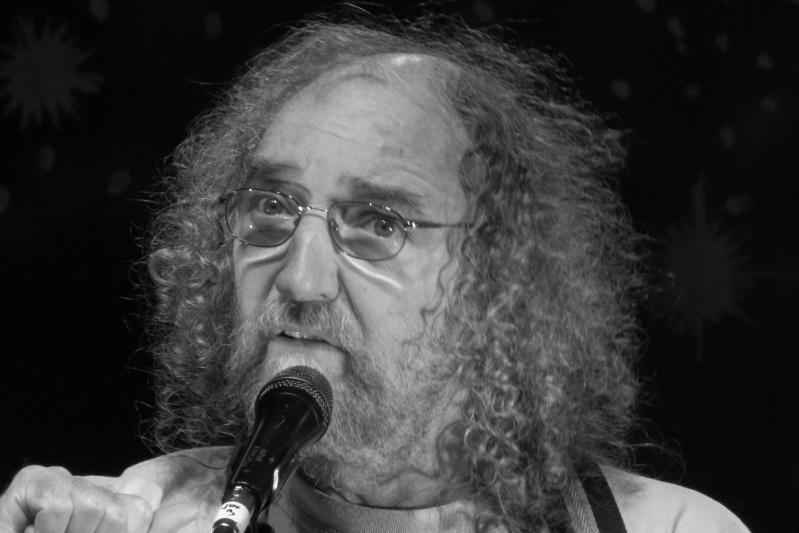Folk music took Vin Garbutt to Australia, New Zealand, Yugoslavia, the United States, Canada, Bermuda, Asia and all over Western Europe. Yet the “Teesside Troubador”, as the title of a 2010 documentary film dubbed him, remained true to his Middlesbrough roots, singing hilariously and poignantly about them in his local accent.
Garbutt, who was arguably British folk’s most popular solo artist over the past 30 years, began exporting his music and repartee in 1977. With his long corkscrew curls and beard, Lennon-style spectacles, guitar, penny whistle and distinctive voice, he had established himself beyond his native north-east England by what he called “word of mouth and non-stop touring”.
Reflecting on the day in 1962 when he acquired his first guitar aged 14, Garbutt believed it “changed my life”. At 15 he became an apprentice at the ICI works at Wilton, but in 1969 he took off for Spain with his guitar. Later he visited Ireland, where his mother was from, all the time learning reels, collecting songs and honing his style.
His first LP, 1972’s The Valley of Tees, included “Mr Gunman”, a track about “The Troubles” in Northern Ireland (which he returned to on “Troubles of Erin” in 1999). However, it was the characters and stories from the pits, shipyards, chemical plants and steelworks (in one of which his father worked) which increasingly informed his song-writing. He could sing the most sensitive, painful song, about unemployment, injustice or green issues, but often prefaced it with a long, witty monologue that had his audience in fits of laughter.
In Garbutt’s case, the term “roots” referred not only to his beloved Middlesbrough and North Yorkshire, where he continued to live and described as “a little bit of heaven”. He remained a devout Catholic, and his faith was behind two anti-abortion songs, “Little Innocents” and “The Secret”. His sixth appearance at the Cambridge Folk Festival, in 1990, would be his last. Garbutt felt he had been banned on grounds of political correctness, which the organisers denied.
In 1999 he marked three decades of performing by playing in east Asia. On returning there was a “Take It Easy After 30 Years On the Road Tour”. Two years later he won the award for Best Live Act at the Radio 2 Folk Awards, also receiving a Honorary Master of Arts degree from Teesside University. He maintained a punishing schedule, most recently to promote his 16th album, 2014’s Synthetic Hues.
Garbutt’s website referred jovially to his “dicky ticker”. In April he underwent major coronary surgery, spending a month in a Middlesbrough hospital. The operation and intensive care appeared to be successful, and late last month he spoke in a BBC Tees interview about the “overwhelming support” he had received “from around the world”.
Being back in “me own bed”, and seeing “the poppies, marigolds and sunshine” in his garden, fired his enthusiasm for returning to the clubs, pubs and arts centres, only for a statement by his wife Pat and their four children to announce his death.
Vincent Paul Garbutt, born 20 November 1947, died 6 June 2017
Subscribe to Independent Premium to bookmark this article
Want to bookmark your favourite articles and stories to read or reference later? Start your Independent Premium subscription today.


Join our commenting forum
Join thought-provoking conversations, follow other Independent readers and see their replies